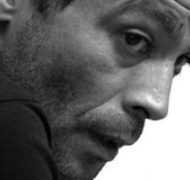Wisdom Doesn’t Always Jump In
Blog / Produced by The High Calling
Lynne was usually the first one in the pool. She loved to swim and was always full of energy. But today she stood hesitantly on the deck.
I’d worked as a lifeguard at this camp for several summers, and I’d gotten to know her as a delightful young lady who was an excellent athlete. Even though she was a pre-teenager, she would beat me consistently in games like tetherball and box hockey. She was so active that it wasn’t much of a surprise when she broke her arm. The doctor set the arm in a cast and told her it should heal just fine. But she wasn’t supposed to get the cast wet. Permanent injury to the arm might result if the cast was weakened and the bone lost its support while it was mending.
Now, as the sun glistened on the blue surface of the pool and her friends splashed around happily, I could see an almost magnetic force drawing Lynne toward the water. She came over to me and asked, "Do you think it would be all right if I went into the pool?" "Absolutely not!" I replied. "Remember what the doctor told you. You’re such a good athlete, please don’t risk a permanent injury." "But I want to go in!" she insisted. The desire to swim and play was simply overwhelming. She walked over to the pool and stood on the edge, looking as if she was about to dive in.
"This is my prayer," Paul wrote to the Philippians, "that your love may abound more and more in knowledge and depth of insight, so that you may be able to discern what is best, and may be pure and blameless for the day of Christ, filled with the fruit of righteousness that comes through Jesus Christ--to the glory and praise of God" (Philippians 1:9-11).
To discern what is best - that’s so often the challenge. Opportunities come into our lives, and we want to take advantage of them. They’re usually opportunities for good things (like a swim in the pool with our friends). But the desire we feel for them is sometimes so compelling that we’re not able to recognize that another course might actually be better for us in the long term. We truly need God to give us "knowledge" and "depth of insight," so we can see beyond the limitations of our human perspective.
Maybe we should go slow in this friendship, until we have a better idea who that other person really is.
Maybe staying put for a while longer is going to be better for us and our family, even though we’re itching for a change and there’s an easy opportunity to move.
Maybe we need to turn down that glamorous-sounding assignment if it would keep us away from home too much of the time.
What we can see is good. But is it the best? Only God can show us.
Lynne teetered on the edge of the pool. She leaned forward a couple of times to dive, but always settled back on her heels again. She knew I was watching her and she had to be thinking about my plea. The internal struggle was obviously intense. But I knew she was already a young woman of faith, and I was praying that the influence of God’s Spirit would be even stronger than the pull of the water.
Finally, very reluctantly, she turned around and walked back over to me. "Okay, you’re right," she conceded. "I’ll just wait." She sat on the grass and visited with her friends whenever they came out of the water, making as much of the afternoon as she could.
And later that day, she beat me in tetherball. She still had one good arm. And the other would be back in no time.
Questions for personal reflection, online discussion, or small groups:
- What decision are you facing today between what’s "good" and what’s "best"?
- How does discerning what is best help us to be "pure and blameless" and bring "glory and praise" to God?
- What experiences have you had in the past that have helped you develop more "knowledge" and "depth of insight" about how to choose what’s best?





